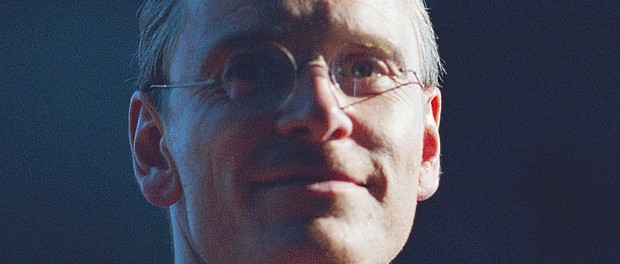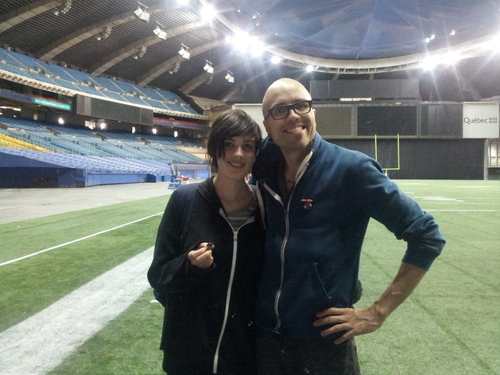Review of Steve Jobs: The Unravelling of an Emotional Life
Based on Walter Issacson’s book about the man, Aaron Sorkin (of Money Ball, The Social Network fame) masterfully creates the cerebral and emotional world of Steve Jobs, the man mostly associated with his 21st century revolution that we all know as the Apple computer. Danny Boyle (of Slumdog Millionaire fame) takes this exceedingly engaging script and holds you to your seat for the two hour emotional marathon that is Steve Jobs. This man and his life have a cult of its own. Those who know of him and the work that he did can’t help but acknowledge how he changed modern computing. He was a master designer and extremely skilled entrepreneur, which lent a cruel side to him. Steve Jobs (the movie) is about that cruelty and how it played out. Sorkin’s writing places Jobs at the centre of a room and takes him to task one after another.
Act 1 and we are at the cusp of the Macintosh launch. Steve Jobs, the visionary and ruthless perfectionist continues to stave off judgement and criticism from his closest colleagues/inner circle. The computer is about to be launched in less than an hour and the ‘Hello’ greeting function has crashed. He must, at all costs, have that function be part of the launch and his engineer Andy Hertzfled (played by Michael Stuhlbarg) must fix it in time. At the same time, his ex Chrisann Brennan is at his door asking for money as she has finally landed on welfare. Quick rewind: Jobs lost a court battle against Brennan, and the court established close to 94.some % paternity of his daughter with her. Jobs continues to mathematically fight the paternity result, while Chrisann prods his guilt that his only daughter can’t even keep herself warm, while he expands his net worth into the hundreds of millions.
Another battlefront is Jobs’ founding engineer and somewhat-friend Steve Wozniak (played by Seth Rogan), who insists that he acknowledge the contribution of the Apple II and how that founding product built the company for over seven years. Jobs is firm that Apple II is a thing of the past and refuses to include that in the Macintosh launch.
In all of this emotional rough and tumble is this one word of reason, his professional rock – Kate Winslet brilliantly plays his marketing guru Joanna Hoffman. She acts as Jobs’s conscience, his calm and often his only word of reason. Kate struggles a little to carry off a Polish accent, but she does it endearingly and is just brilliant as a tough talking, sharp professional who seems to keep the media engaged and at bay for the constantly erratic Jobs. Her affection also runs deep as she continues to fight Jobs to mend his relationship with his daughter.
As Macintosh fails miserably, lacking in sales and consumer interest, Steve Jobs loses a terribly ugly power struggle with the Board of Apple. His long time friend and confidante on the board, CEO John Scully (Jeff Daniels) is pushed to the wall and has to choose between his own job and his friendship with Jobs. This line of fire also engulfs his friendship with Steve Wozniak and everyone at Apple, enough that when Jobs leaves, his former colleagues take to the tabloids to disparage him.
Sorkin uses this emotional entanglement that is Steve Jobs, who is also rooted unfailingly in the vision and success of his ideas, and creates heightened tension throughout the film.
The other interesting piece of the film is the relationship Jobs ends up having with his daughter Lisa. From denying his paternity to a slowly evolving relationship with her, Jobs struggles to step away from his uni-focal understanding of the world. He cannot be kind to Chrisann and his forced generosity does not win Lisa over to his side. As she grows up, she faults him for not being the father that he should have been.
What’s interesting about the film is that while there are instances where Jobs tears up and is seen to be vulnerable, he remains the solid protagonist of the film. Michel Fassbender (I think he is a great actor) delivers a very single dimensional performance. It isn’t bad, but while the film is all about him and his emotional demons, people like Winslet and Daniels and also Rogan shine in their parts.
As the second part of the film unravels and we find Jobs at the cusp of another big product launch, the backstage emotional rollercoaster of his relationships continue. It’s a fascinating way to approach story-telling where the audience knows that the big launch, the big event is on a stage outside, yet they are kept hostage to the drama that’s unfolding behind the stage. They can’t leave it and go sit in the audience, they perhaps want to, but they can’t. They can’t quit being witnesses to the unravelling of Steve Jobs, the man behind the genius and ground breaking products that he made.
The film left me thinking about many things and the most important one was that while human genius seems to have no bounds and our imagination stretches to the farthest ends of this universe, we all seem to struggle to connect and learn about the person next to us. Is it really a failing of us as people, or is it what Jobs confesses to Lisa towards the end when he tells her that he, (like most if not all of us) was pretty damaged himself?
★★★½
Steve Jobs is now playing in theatres.








